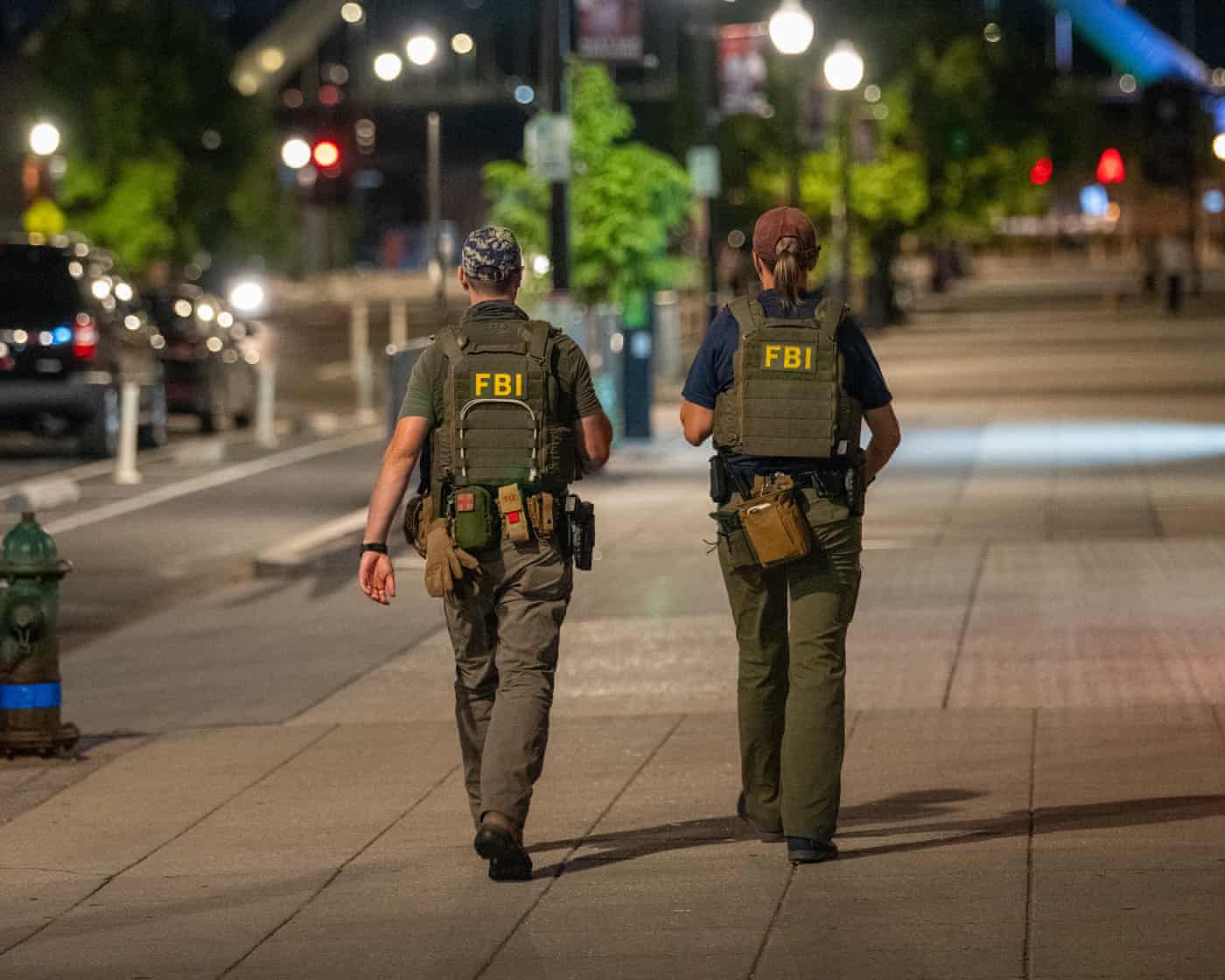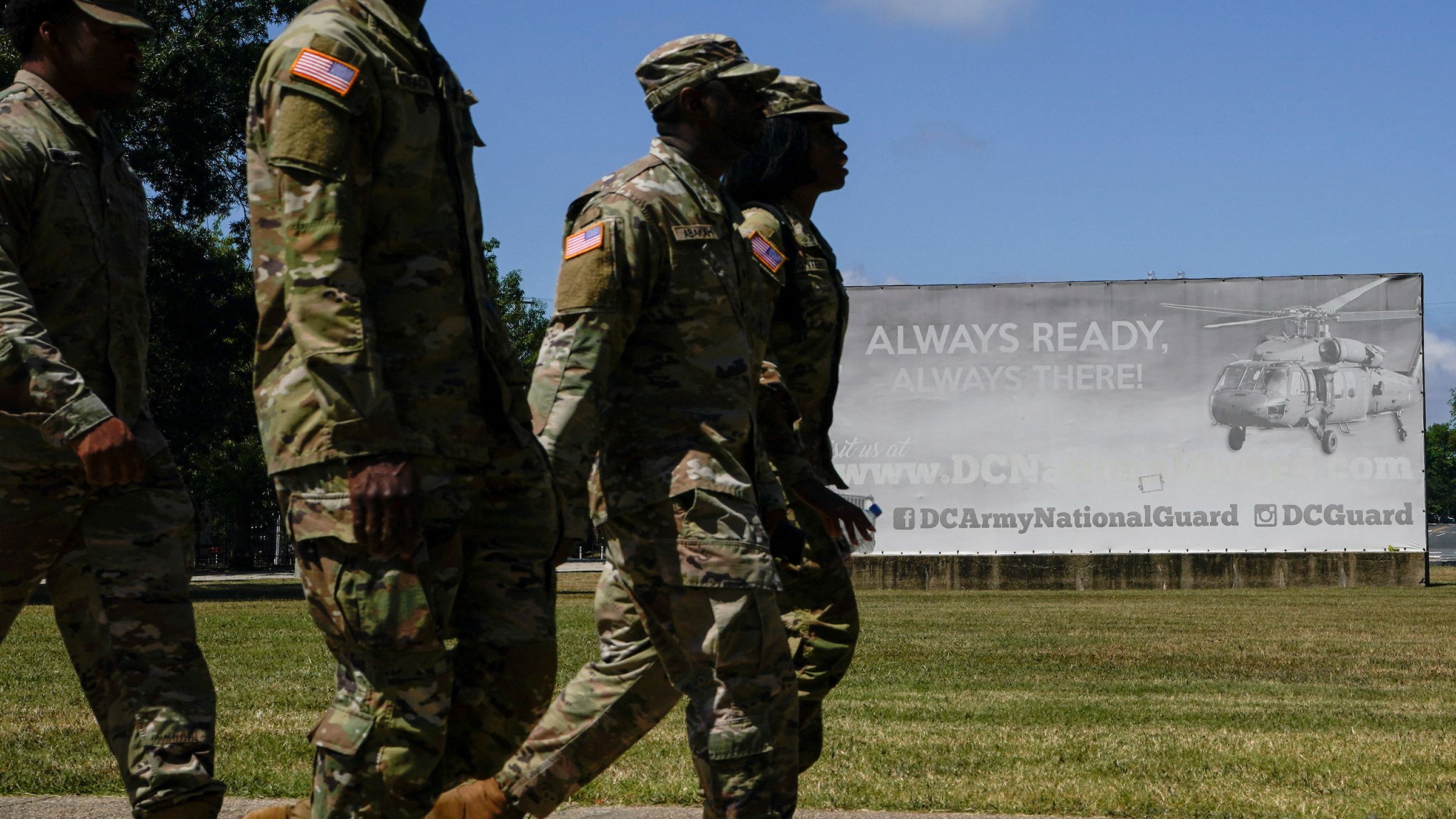
French NBA star Victor Wembanyama speaks out after Border Patrol-involved shooting: 'Horrified'
Entities mentioned:
- Victor Wembanyama: Moral outrage, Justice, Righteousness
- Border Patrol: Control, Security, Duty
- National Basketball Players Association: Unity, Justice, Moral outrage
Article Assessment:
Credibility Score: 75/100
Bias Rating: 35/100 (Lean Left)
Sentiment Score: 25/100
Authoritarianism Risk: 20/100 (Strongly Democratic)
Bias Analysis:
The article leans left, focusing heavily on criticisms of law enforcement and emphasizing player solidarity with protesters. It provides limited context from the Border Patrol's perspective, potentially skewing the reader's interpretation.
Key metric: Civil Liberties Protection Index
Let me tell you something, folks - this story is a GAME-CHANGER! We've got NBA rookie sensation Victor Wembanyama stepping up to the plate and SLAMMING this issue out of the park! This French phenom isn't just a force on the court, he's showing championship-level courage by speaking out against what he sees as an egregious foul by Border Patrol. The National Basketball Players Association is rallying the troops, showing true team spirit in the face of adversity. They're not just playing defense, they're going on the offensive to protect civil liberties. This is a crucial fourth-quarter play in the game of justice, and these NBA stars are proving they've got the clutch gene when it matters most!

Following LA and DC, Trump wants to send the National Guard to other US cities. Here’s how he can do it
Entities mentioned:
- Donald Trump: Power, Control, Influence
- Elizabeth Goitein: Justice, Duty, Professional pride
- Brandon Johnson: Righteousness, Duty, Indignation
- JB Pritzker: Righteousness, Duty, Indignation
- David Janovsky: Professional pride, Duty, Wariness
- Pam Bondi: Loyalty, Control, Influence
- Gavin Newsom: Righteousness, Duty, Self-preservation
Article Assessment:
Credibility Score: 75/100
Bias Rating: 40/100 (Lean Left)
Sentiment Score: 30/100
Authoritarianism Risk: 65/100 (Authoritarian Tendencies)
Bias Analysis:
The article leans slightly left, giving more space to critics of Trump's actions and framing the issue as a potential overreach of presidential power. However, it does include multiple perspectives and cites legal justifications for Trump's actions.
Key metric: Civil Liberties Protection Index
As a social scientist, I analyze that this article highlights a significant tension between federal and state powers, particularly concerning the use of military forces for domestic law enforcement. The proposed actions by the Trump administration represent a potential shift in the balance of power, raising concerns about civil liberties and the traditional separation of military and police functions. This situation could have far-reaching implications for federalism, constitutional interpretation, and the scope of presidential authority in domestic affairs. The legal challenges and pushback from state and local officials underscore the complexity of these issues and the potential for a constitutional crisis if federal forces are deployed against the wishes of state governments.

Federal appeals court sides with Texas students fighting campus drag show ban
Entities mentioned:
- Spectrum WT: Freedom, Justice, Self-respect
- West Texas A&M University: Control, Moral outrage, Duty
- Walter Wendler: Moral outrage, Control, Righteousness
- 5th US Circuit Court of Appeals: Justice, Duty, Professional pride
- Judge Leslie Southwick: Justice, Duty, Professional pride
- Judge James Dennis: Justice, Duty, Professional pride
- Judge Matthew Kacsmaryk: Righteousness, Moral outrage, Duty
- Judge James Ho: Moral outrage, Righteousness, Duty
- Republican state lawmakers: Control, Moral outrage, Righteousness
Article Assessment:
Credibility Score: 85/100
Bias Rating: 40/100 (Lean Left)
Sentiment Score: 55/100
Authoritarianism Risk: 20/100 (Strongly Democratic)
Bias Analysis:
The article leans slightly left in its framing, giving more space to arguments supporting the drag show and civil liberties. However, it does include opposing viewpoints and court decisions, maintaining a relatively balanced approach.
Key metric: Civil Liberties Protection Index
As a social scientist, I analyze that this court ruling significantly impacts the Civil Liberties Protection Index by reinforcing First Amendment protections for LGBTQ+ expression on public university campuses. The decision challenges attempts to restrict drag shows, which are deemed protected speech. This ruling sets a precedent that could influence similar cases nationwide, potentially strengthening civil liberties for marginalized groups in educational settings. However, the dissenting opinion and ongoing legislative efforts against drag shows indicate continued tension between civil liberties and conservative values in public institutions. This case highlights the evolving nature of free speech debates in the context of LGBTQ+ rights and educational environments.

News
Entities mentioned:
- Benjamin Marcelo Guerrero-Cruz: Freedom, Justice, Self-preservation
- Rally attendees: Moral outrage, Unity, Justice
Article Assessment:
Credibility Score: 50/100
Bias Rating: 45/100 (Center)
Sentiment Score: 40/100
Authoritarianism Risk: 35/100 (Generally Democratic)
Bias Analysis:
The article presents limited information without clear bias indicators. The framing of the arrest as a 'kidnapping' by the family suggests a slight lean towards the perspective of the arrested individual, but overall, the piece appears relatively neutral.
Key metric: Civil Liberties Protection Index
As a social scientist, I analyze that this article highlights potential concerns regarding civil liberties and due process. The rally for Benjamin Marcelo Guerrero-Cruz suggests public perception of his arrest as unjust, possibly indicating broader issues with law enforcement practices or treatment of certain communities. This event could impact the Civil Liberties Protection Index by raising awareness of potential violations and mobilizing public support for stronger protections. However, without more context about the circumstances of the arrest or the nature of the 'kidnapping' claim, it's difficult to draw definitive conclusions about systemic issues or long-term impacts on civil liberties.
- Read more about News
- Log in to post comments

The thing Trump’s generals feared about him could now be arriving
Entities mentioned:
- Donald Trump: Power, Control, Self-preservation
- Jim Mattis: Duty, Righteousness, Professional pride
- Mark Esper: Duty, Wariness, Professional pride
- Mark Milley: Duty, Wariness, Anxiety
- John Kelly: Duty, Righteousness, Wariness
Article Assessment:
Credibility Score: 75/100
Bias Rating: 40/100 (Lean Left)
Sentiment Score: 25/100
Authoritarianism Risk: 70/100 (Authoritarian Tendencies)
Bias Analysis:
The article leans slightly left, focusing on criticisms of Trump from former officials. However, it presents multiple sources and factual information, balancing the bias somewhat.
Key metric: Civil Liberties Protection Index
As a social scientist, I analyze that this article highlights a significant concern about the potential misuse of military power against American citizens, which directly impacts civil liberties. The repeated attempts and expressed desires by Trump to deploy military forces in domestic situations, without requests from local authorities, indicate a troubling trend towards increased militarization of civilian spaces. This could lead to erosion of the traditional separation between military and civilian affairs, potentially threatening democratic norms and individual freedoms. The warnings from high-ranking military officials underscore the gravity of this issue and suggest that the guardrails of democracy are being tested. This situation could lead to a decrease in the Civil Liberties Protection Index, as it represents a potential shift towards more authoritarian governance and a weakening of civilian control over military forces.